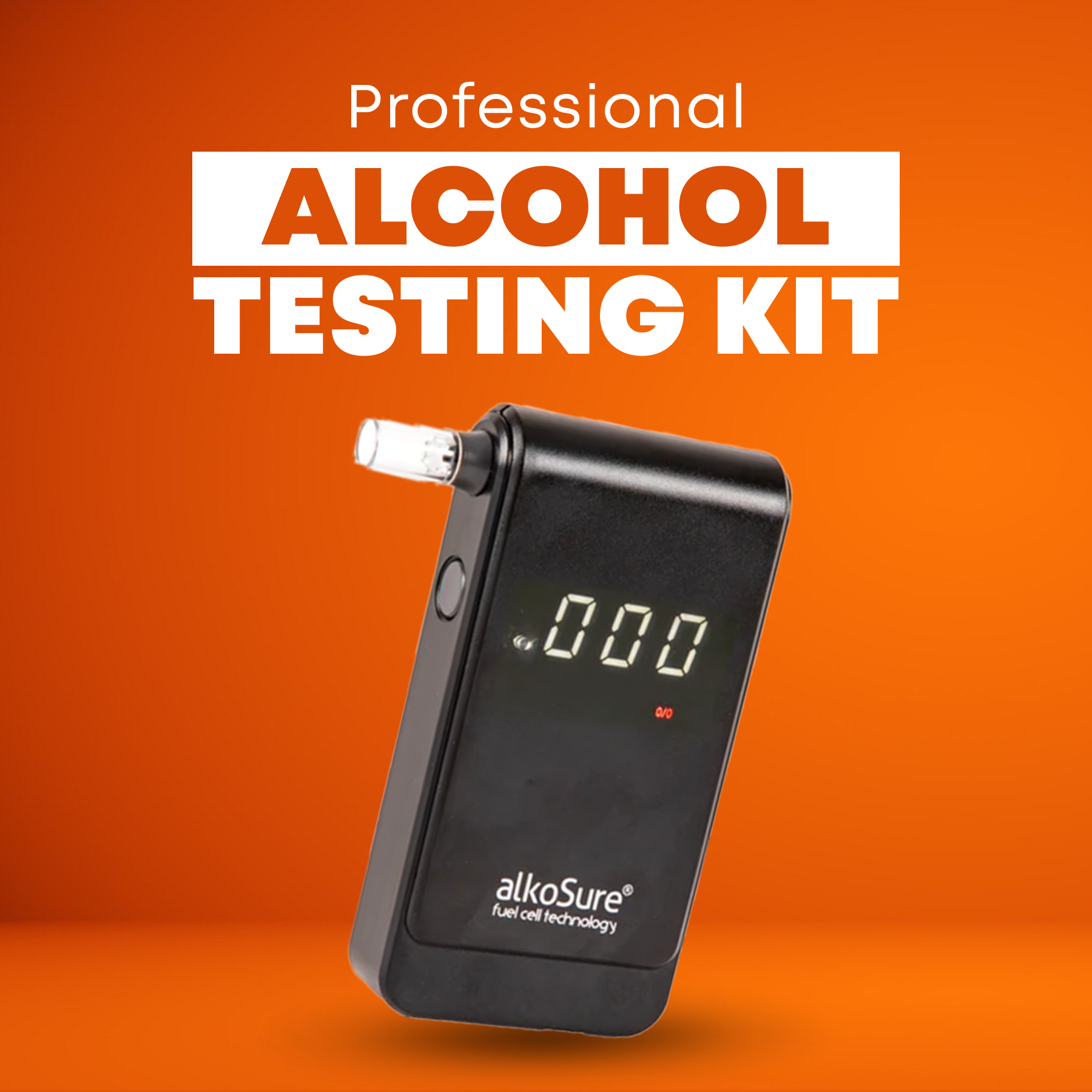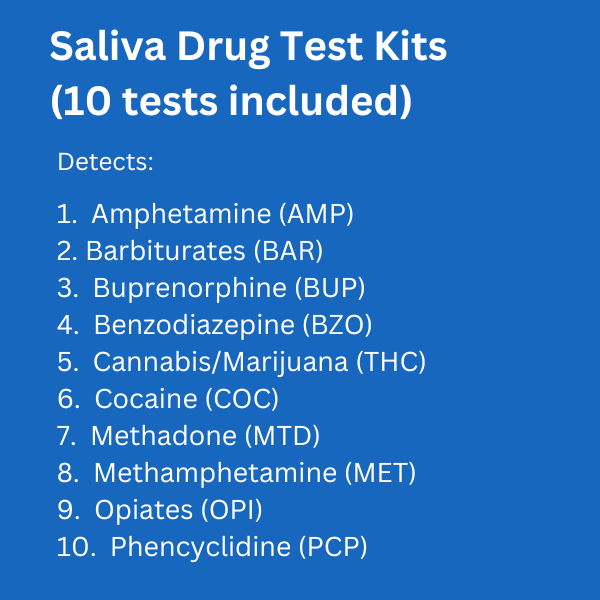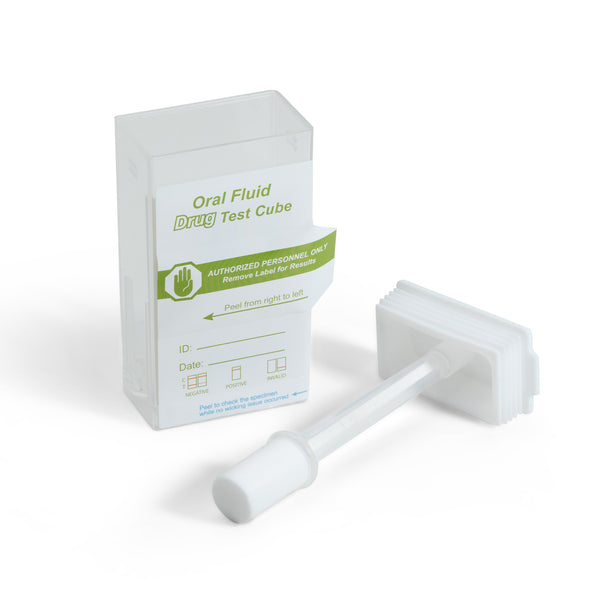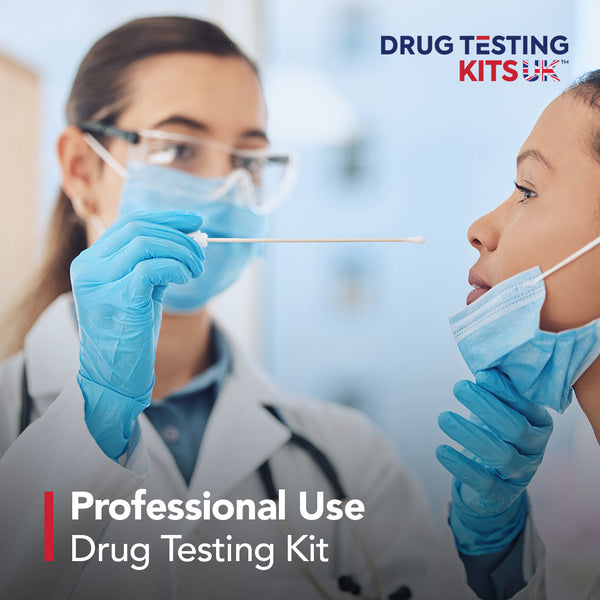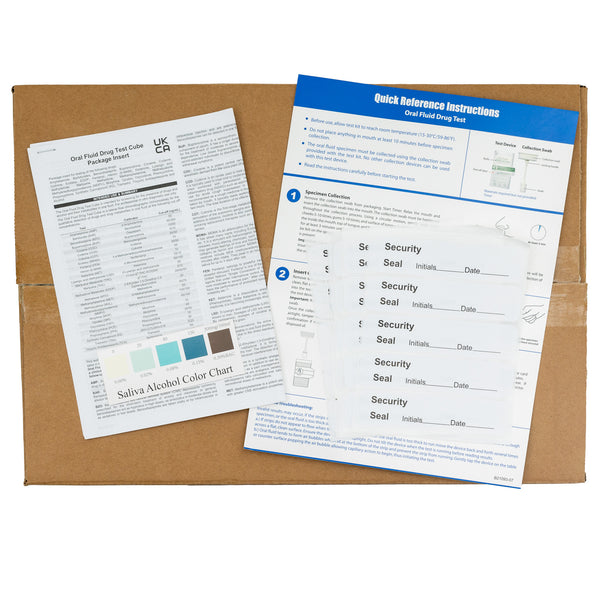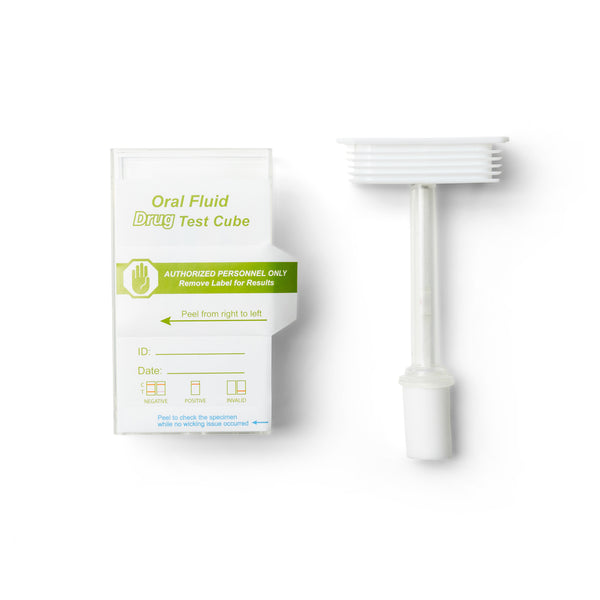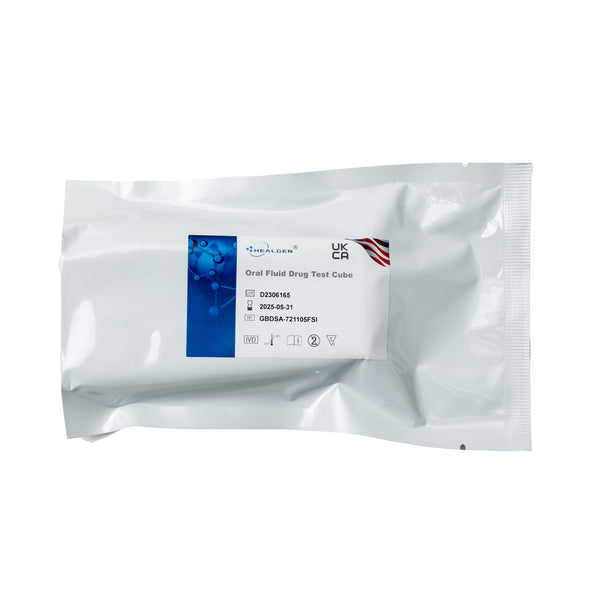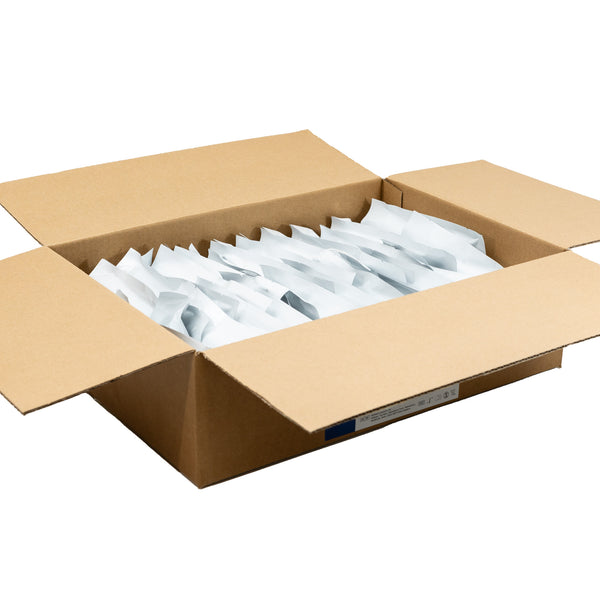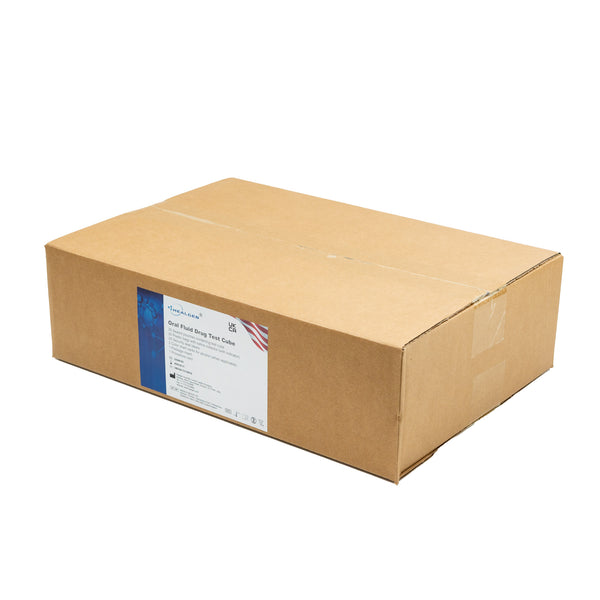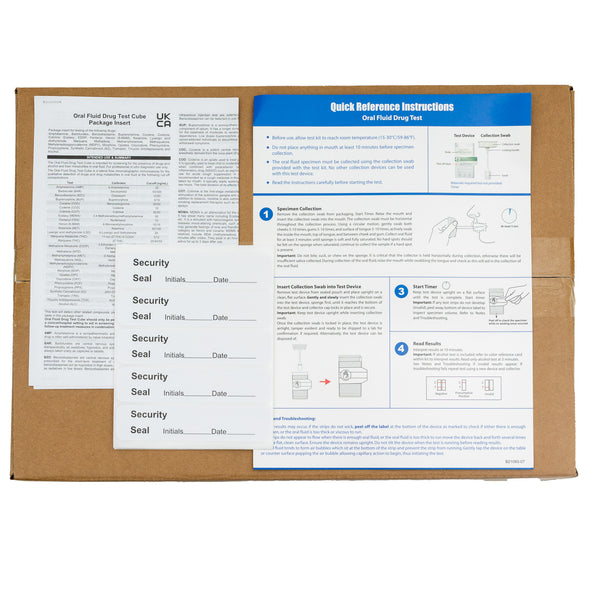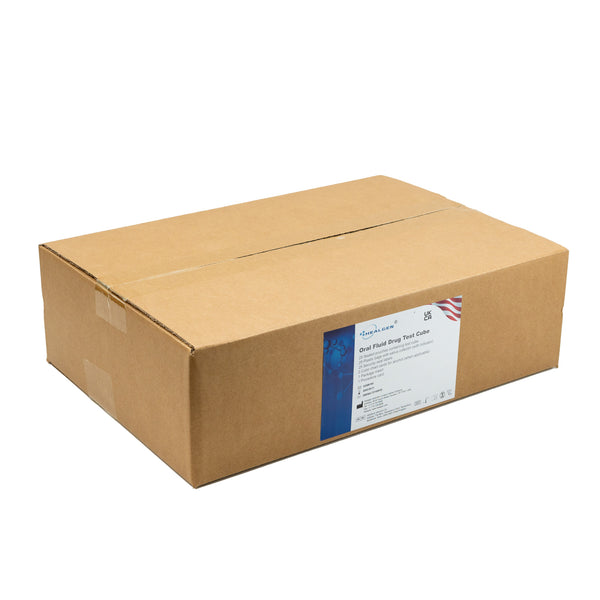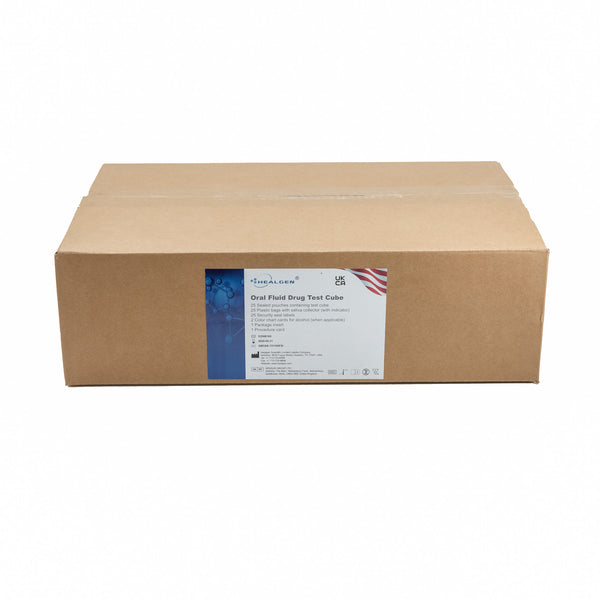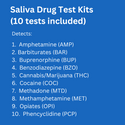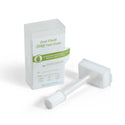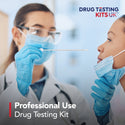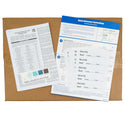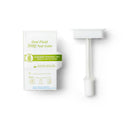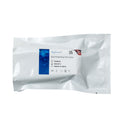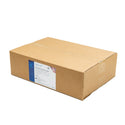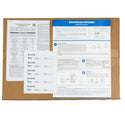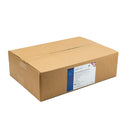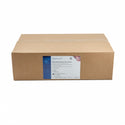Why you can trust Drug Testing Kits UK for advice on choosing the right drug testing products. Our team of UK drug and alcohol safety experts meticulously analyzes current regulations and scientific data while incorporating feedback from real-world users of our products. Additionally, we consult with healthcare and industry professionals to ensure that our recommendations are practical and valuable. This reliable information can guide your decision-making process when selecting drug and alcohol testing kits suitable for your needs.
If you're wondering whether a standard breathalyzer can detect cannabis use, the short answer is no. Traditional breathalyzers are designed specifically to measure alcohol concentration in your breath and cannot detect THC (the psychoactive component in cannabis). However, with cannabis laws evolving and roadside drug testing becoming more common in the UK, it's important to understand how these technologies work and what might be on the horizon.
What Is a Breathalyzer and How Does It Work?

A breathalyzer is a device that measures alcohol concentration in your breath. These devices work on a simple principle: when you consume alcohol, some of it evaporates from your bloodstream into your lungs and is exhaled when you breathe.
Standard breathalyzers use one of two technologies:
-
Fuel cell technology: Converts alcohol in your breath into an electrical current – more alcohol means stronger current
-
Infrared spectroscopy: Measures how alcohol molecules absorb infrared light
Both methods are specifically calibrated to detect ethanol (alcohol) molecules, which have different properties than THC molecules. This fundamental difference explains why cannabis remains undetectable by conventional breathalyzers.
If you're looking for reliable alcohol testing equipment, explore our range of breathalyzers designed for personal and professional use.
Can a Breathalyzer Detect THC (Weed)?
No, standard breathalyzers cannot detect THC or any cannabis compounds. Here's why:
-
Different molecular properties: Alcohol is volatile and easily passes from blood into breath gas. THC is heavier, stickier, and doesn't readily convert to a gas at body temperature.
-
Measurement challenges: THC exists in breath primarily as aerosol particles, not as a gas like alcohol. This makes it much harder to detect using the same technology.
-
Calibration differences: Breathalyzers are precisely calibrated for alcohol's specific properties. These calibrations simply don't work for detecting cannabinoids.
Common Misconceptions
There are several myths about breathalyzers and cannabis that need clearing up:
"I can fail a breathalyzer from smoking weed"
False. Standard breathalyzers only detect alcohol. You won't fail an alcohol breathalyzer test from cannabis use alone.
"If I blow cannabis smoke into a breathalyzer, it will detect it"
While this won't register as THC, it could potentially:
-
Contaminate the device
-
Cause errors or malfunctions
-
Be recorded if the device has a camera (some do)
"Breathalyzers and drug tests are the same thing"
Not at all. Breathalyzers specifically test for alcohol in breath. Drug tests for cannabis typically use saliva, urine, blood, or hair samples and look for THC or its metabolites.
What Happens If You Smoke Weed Near or Into a Breathalyzer?

While a breathalyzer won't detect THC, smoking cannabis near one can still cause problems:
-
Device contamination: Smoke particles might interfere with the sensor's function
-
Error messages: Some devices will register an error if they detect anything unusual
-
Photographic evidence: Modern interlock devices (like those installed in vehicles after DUI convictions) often include cameras that record each test
This is particularly important for people with ignition interlock devices (IIDs). These devices require clean breath samples to start a vehicle, and many have anti-circumvention features that could flag unusual testing conditions.
Are There THC Breathalyzers Being Developed?
Yes, several companies and research institutions are working on devices that can detect recent cannabis use through breath:
-
Hound Labs: Developing a dual alcohol/THC breathalyzer claiming to detect THC for up to 3 hours after use
-
Cannabix Technologies: Working on a breath detection system using mass spectrometry
-
University of Pittsburgh: Researchers have created a THC breathalyzer prototype using carbon nanotubes
However, these technologies face significant challenges:
-
Establishing reliable correlation between breath THC levels and actual impairment
-
Creating consistent standards for what constitutes "too impaired to drive"
-
Gaining regulatory approval and legal acceptance
None of these devices are currently approved for roadside use in the UK or elsewhere, though pilot testing is underway in some locations.
How Do Police Currently Test for Weed in the UK?

Since breathalyzers don't detect cannabis, UK police use different methods:
-
Roadside screening: Officers use DrugWipe devices that test saliva for cannabis and other drugs. These can detect THC for approximately 6-12 hours after use.
-
Field sobriety tests: Police may conduct physical and cognitive tests to assess impairment.
-
Blood tests: If the roadside test is positive, you'll be taken to a police station for a blood test, which is used as evidence in court.
Under UK law, the legal limit for THC in blood is 2μg/L (micrograms per litre). Penalties for drug-driving include:
-
Minimum 12-month driving ban
-
Unlimited fine
-
Up to 6 months in prison
-
Criminal record
Difference Between Alcohol Breath Tests and Drug Tests
Understanding the fundamental differences helps explain why we don't yet have reliable THC breathalyzers:
|
Feature |
Alcohol Breathalyzer |
THC Detection |
|
Detectable in breath? |
✓ Yes (volatile gas) |
⚠️ Barely (aerosol particles) |
|
Time in system |
Hours |
Days to weeks (chronic users) |
|
Test used |
Breath |
Saliva, blood, urine, hair |
|
Indicates impairment? |
Strong correlation |
Poor correlation |
|
Legal limits |
Well-established |
Still developing |
The crucial difference is that alcohol levels correlate well with impairment, while THC levels don't. Cannabis can be detected long after impairment has passed, making it difficult to establish a reliable "impairment threshold."
Is There Any Risk of False Positives?
Standard breathalyzers won't give false positives for THC, but there are related concerns:
-
Device interference: Smoke particles or residue might cause errors or damage
-
Policy violations: Using cannabis near an interlock device might violate terms of use
-
Cross-reactivity: Some foods or medications can cause false positives on certain drug tests (though not on breathalyzers)
For workplace or legal testing, it's important to disclose any medications you're taking that might affect results.
Alternative Methods of Cannabis Detection
Since breathalyzers don't detect cannabis, these methods are used instead:
Saliva Tests
-
Detection window: Approximately 6-12 hours after use
-
Used for: Roadside screening, workplace testing
-
Advantages: Non-invasive, detects recent use
-
UK context: Primary method for roadside drug screening
Blood Tests
-
Detection window: Up to 36 hours (occasional users), longer for regular users
-
Used for: Legal evidence, confirmatory testing
-
Advantages: Most accurate for active THC levels
-
UK context: Used as evidence in drug-driving cases
Urine Tests
-
Detection window: 3-30 days depending on frequency of use
-
Used for: Workplace testing, rehabilitation monitoring
-
Advantages: Non-invasive, longer detection window
-
UK context: Common in workplace drug policies
Hair Tests
-
Detection window: Up to 90 days
-
Used for: Historical drug use patterns
-
Advantages: Shows long-term use patterns
-
UK context: Less common, used in specific circumstances
Future of THC Detection in the UK
The UK hasn't yet approved any breath-based THC testing devices, but the landscape is evolving:
-
Research investment: The UK government has shown interest in developing better roadside drug testing
-
Legal framework: Any new technology would need to fit within existing drug-driving laws
-
Public health considerations: Rising cannabis use means more focus on impairment detection
As technology improves, we may see pilot programs testing new devices, but for now, the UK relies on saliva screening followed by blood tests.
Frequently Asked Questions
Can I fail a breathalyzer for weed?
No. Standard breathalyzers only detect alcohol, not THC or other cannabinoids.
Does smoking weed affect ignition interlock devices?
The device won't detect THC, but smoking near it could cause errors or violations if the device has anti-circumvention features or cameras.
Is there a marijuana breathalyzer in the UK?
Not currently. While several companies are developing THC breathalyzers, none are approved for use by UK police or employers.
How do police test for weed if breathalyzers don't work?
UK police use DrugWipe saliva tests at the roadside, followed by blood tests at the station if the initial screen is positive.
Can weed cause a false positive on an alcohol breathalyzer?
No, cannabis itself won't cause a false positive for alcohol. However, if you've been drinking alcohol while using cannabis, the breathalyzer will detect the alcohol.
Final Thoughts
To summarize: no, traditional breathalyzers cannot detect cannabis or THC. They're specifically designed to measure alcohol and use technology that simply doesn't work for cannabinoids.
However, this doesn't mean cannabis users are "in the clear" when it comes to testing. UK authorities have other effective methods to detect recent cannabis use, particularly through saliva and blood testing. With drug-driving laws becoming stricter and testing more common, it's important to understand that just because a breathalyzer can't detect cannabis doesn't mean other tests won't.
If you're concerned about drug testing in your workplace or have questions about testing methods, explore our range of drug testing kits for more information on how different substances are detected.



 03333 704 704
03333 704 704


